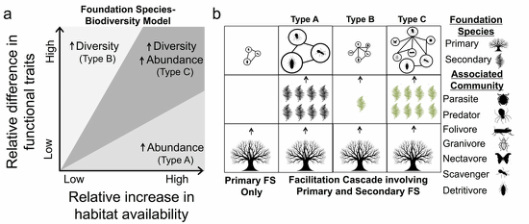Introduction
In the realm of decision-making, the concept of Foundational Species offers valuable insights into how individuals often rely heavily on initial information or reference points when making judgments or choices. This mental model, rooted in human psychology, can have significant implications for decision-making processes in various aspects of our lives. Understanding the Foundational Species and its prevalence is essential for making more rational and informed decisions. In this blog post, we will explore the definition, relevance, examples, underlying biases, strategies for identification and prevention, and the importance of awareness when dealing with the Foundational Species mental model.
Definition and Relevance
The Foundational Species refers to the tendency of individuals to anchor their judgments or decisions to initial information, even when that information may be flawed, limited, or irrelevant. This bias occurs because humans have a natural inclination to rely on the first piece of information they encounter and use it as a reference point for subsequent evaluations. The Foundational Species can significantly impact decision-making processes, leading individuals or groups to make irrational choices that are contrary to their best interests.
Anchored in Human Psychology
The Foundational Species is deeply rooted in human psychology, particularly the cognitive bias known as anchoring bias. Anchoring bias occurs when individuals rely too heavily on the initial information they receive when making judgments or estimates. This bias can lead to skewed perceptions, as subsequent information is often interpreted in relation to the initial anchor, leading to a biased decision-making process. The prevalence of anchoring bias in our day-to-day lives is evident in various scenarios, from personal decision-making to business negotiations and public policy-making.
Examples of the Foundational Species
- Personal Life Decisions: Imagine an individual purchasing a new house. If they anchor their decision on the first house they see, they may overlook better options that come later. This fixation on the initial reference point limits their ability to make an objective and comprehensive assessment of all available choices.
- Business Scenarios: In a negotiation, a buyer and seller agree on an initial price. The buyer’s willingness to pay is often influenced by this anchor, regardless of the true value or market price of the product or service. This anchoring bias can lead to suboptimal deals for both parties involved.
- Public Policy-Making: When policymakers propose a solution to a complex problem, the public often anchors their perception of the issue based on the initial proposal. Subsequent discussions and alternatives may receive less attention and consideration, hindering the development of effective and well-rounded policies.
Mental Biases and Underpinnings
The Foundational Species is influenced by several mental biases, with anchoring bias being the primary contributor. Additionally, confirmation bias can further reinforce the initial anchor, as individuals tend to seek information that supports their existing beliefs or preferences while ignoring contradictory evidence. Availability heuristic, where individuals rely on readily available information, and representativeness heuristic, where judgments are based on similarity to a prototype, can also contribute to anchoring biases.
Identifying and Avoiding the Foundational Species
To identify when one might be succumbing to the Foundational Species, it is crucial to recognize the presence of initial anchors and assess whether they are clouding judgment or limiting exploration of alternatives. Actively seeking diverse perspectives, conducting thorough research, and considering multiple reference points can help mitigate the influence of anchoring bias. Implementing decision-making frameworks that encourage systematic evaluation and reevaluation of options can also be beneficial.
Conclusion
The Foundational Species mental model reminds us of the inherent biases that influence our decision-making processes, particularly our tendency to anchor judgments to initial information. By understanding the psychological underpinnings and biases associated with the Foundational Species, individuals and groups can strive for more objective decision-making and avoid the pitfalls of irrational choices. Awareness, combined with strategies such as diverse information gathering, thorough analysis, and regular reevaluation of anchors, can help individuals navigate the complexities of decision-making with greater accuracy and effectiveness.
